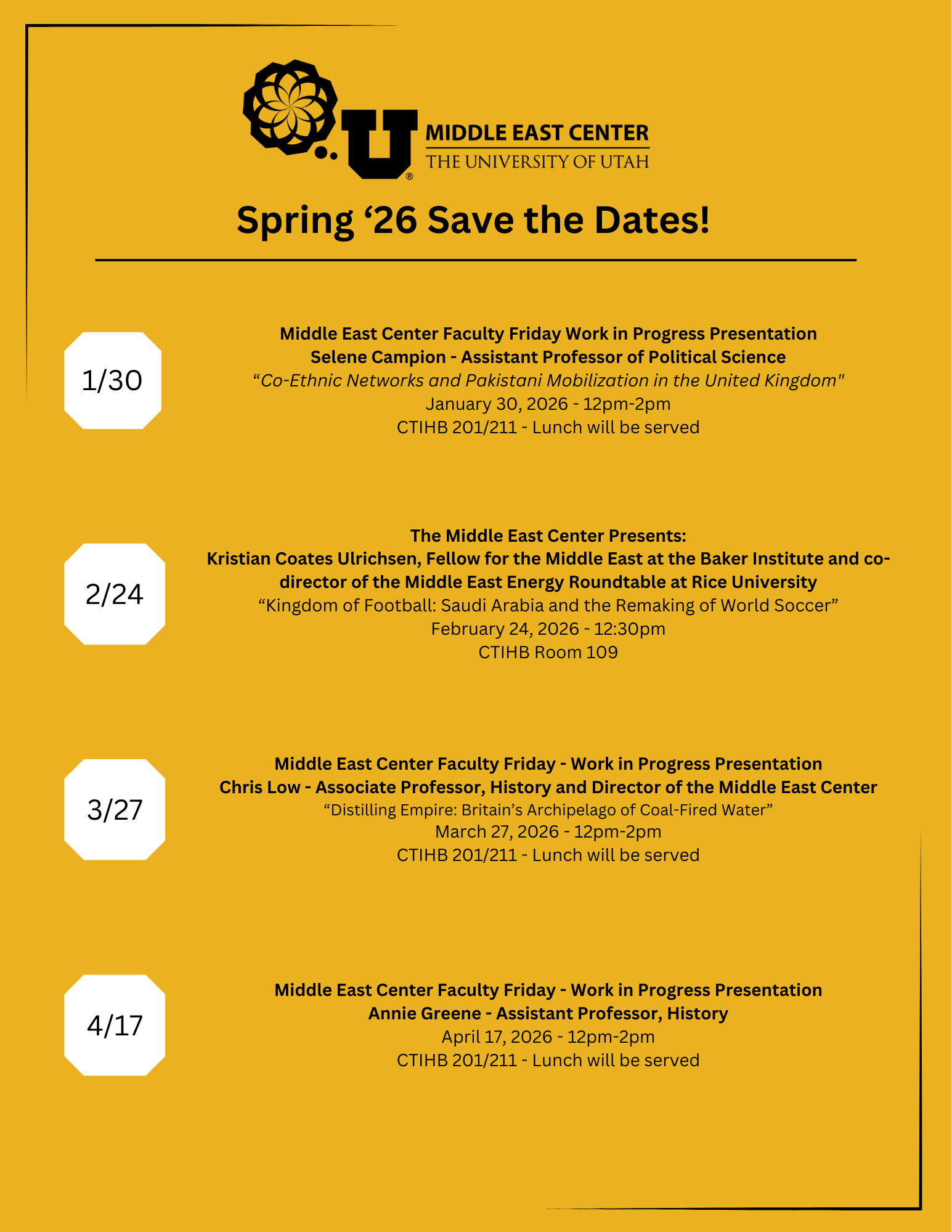About the Center
For more than sixty years the University of Utah's Middle East Center has served as a hub for the scholarly examination of the region. Bringing together than more 30 faculty affiliates from across campus, the Middle East Center facilitates research, teaching, public events, and community outreach. We provide faculty with the resources and intellectual environment to realize cutting-edge research and connect with our scholarly peers from across the nation and the globe. The Center works with the College of Humanities and many partner departments, including World Languages and Cultures, History, and Political Science, to facilitate language learning in Arabic and Persian and an interdisciplinary BA program in Middle East Studies. And finally, the Middle East Center also partners with the University of Utah Press to produce a book series, Transregional Middle Easts.
About the Major
The Middle East Studies degree is designed to provide students with language and cultural competence in the region of the Middle East that can become the foundation for careers in public affairs, public service, business, and many other fields. Students are strongly encouraged to combine the Middle East Studies Major with a major in another discipline so that upon graduation they have acquired a foundation of career-oriented skills as well as a high degree of global competency. The College of Humanities and the International & Area Studies program, in partnership with several collaborating departments across campus, retain primary responsibility for the management and administration of the curriculum in Middle East Studies and other specific disciplinary areas.













